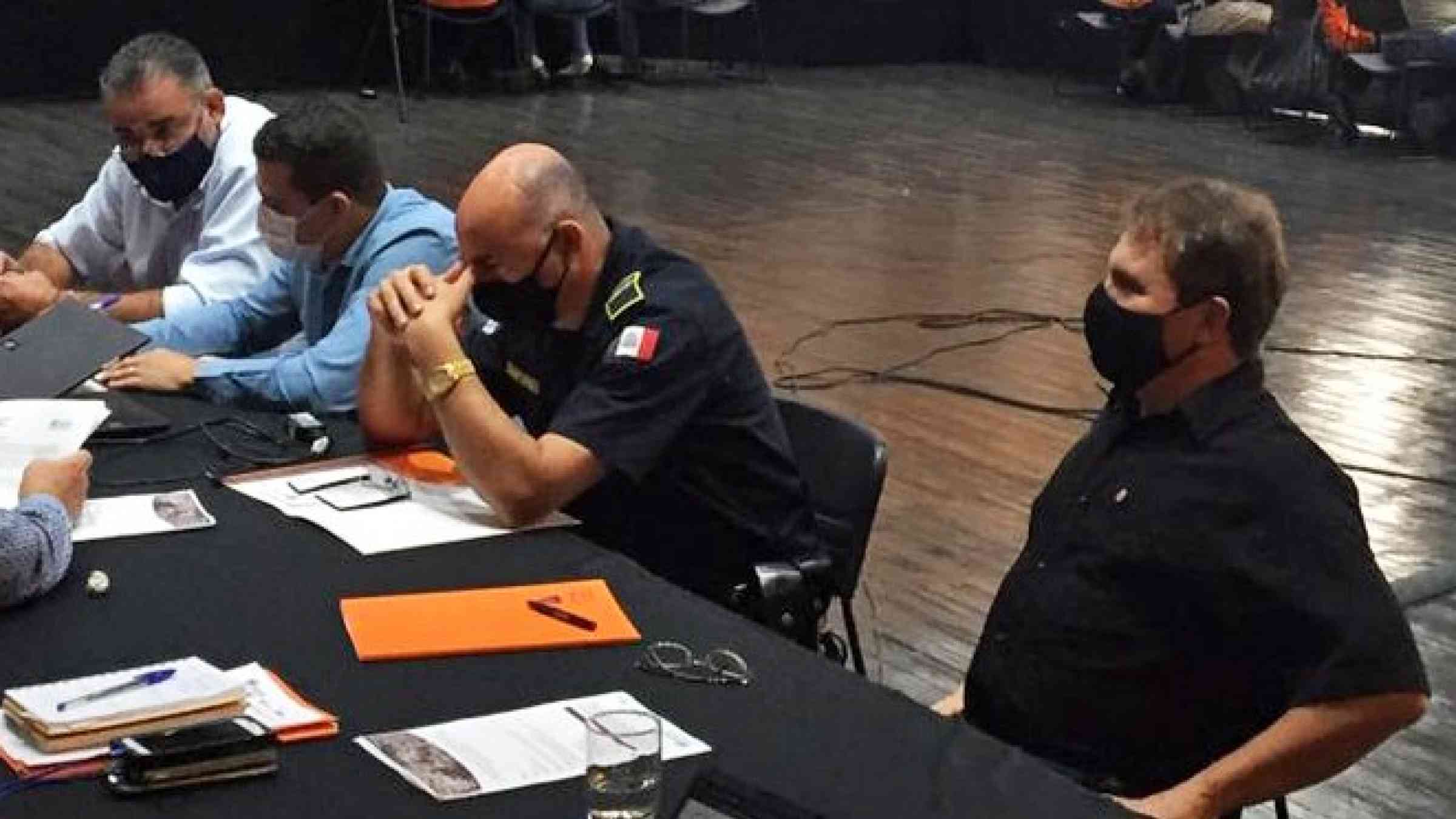300 cities, 131 million people, 1 goal: Resilience

Riversul Mayor José Guilherme Gomes was among 14 local government representatives from the State of São Paulo who were trained on how to use the MCR2030’s ‘Scorecard’ disaster risk assessment tool.
The Brazilian municipality of Riversul has become the 300th member of a global partnership of local governments committed to strengthening their disaster resilience in an ever-riskier world. The district authority in the State of São Paulo joined Making Cities Resilient 2030 (MCR2030) as part of its ambition to protect lives, livelihoods, and development gains from increasing disaster risk.
The Mayor/Senior Official of Riversul, José Guilherme Gomes, is leading by example. Two months ago, he was trained on how to use the MCR2030’s ‘Scorecard’ assessment tool, based on Ten Essentials of disaster resilience. The training, in the State of São Paulo in collaboration with the State Department of Civil Defence, attracted 13 other local government representatives from the State committed to strengthening their practical knowledge on urban resilience.
Mr Gomes said he very much appreciated the opportunity to better understand key guiding principles to strengthen local resilience, including a more inclusive and integrated approach to disaster risk management.
He said he had gained new ideas and developed a better understanding of the importance of stronger risk governance underpinned by a local disaster risk strategy and action plan. The COVID-19 crisis over the past 21 months – on top of the ongoing Climate Emergency – has again shown how crisis prevention is an investment not a cost. And this investment reaps the biggest dividend at the local level.
The joining of Riversul – which translates to ‘South of the River’ – means MCR2030 is well on the way to achieving its 1,000-city target by the end of 2021. A total of 131 million people live in cities already part of MCR2030.
MCR2030 provides a clear three-stage resilience pathway for cities: first, to enhance knowledge on risk and resilience; second, to put in place disaster risk reduction and resilience strategies; and finally, implementation and action to strengthen resilience.
This inclusive and long-term multi-stakeholder partnership provides support & services for local governments along their resilience journey.
In short, MCR2030 increases a city’s access to: knowledge; resources/markets; partnerships; networks; as well as regional and global recognition
MCR2030 has attracted an impressive line-up of core partners: C40 Cities; Resilient Cities Network; ICLEI Local Governments for Sustainability; IFRC; JICA; UCLG; UN HABITAT; UNDRR; UNOPS; World Bank; & World Council on City Data.
The partnership is a prime example of effective international cooperation in support of local leadership and capacity working to prevent and reduce disaster risk. This is the theme of International Day for Disaster Risk Reduction 13 October which focuses on what is Target F) of the Sendai Framework for Disaster Risk Reduction.
Without real action on climate in the next ten years, extreme weather events will be overwhelming for many municipalities around the world.
Explore further
Also featured on
Is this page useful?
Yes No Report an issue on this pageThank you. If you have 2 minutes, we would benefit from additional feedback (link opens in a new window).